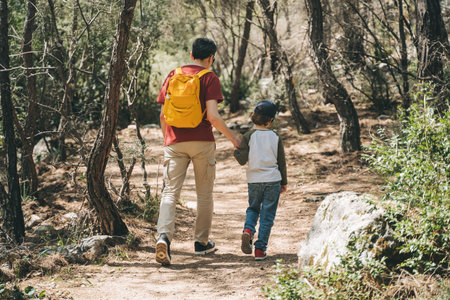Introduction to Campsite Rules in the UK
When planning a family getaway to the great British outdoors, understanding campsite rules is your first line of defence in ensuring both safety and enjoyment for your children. British campsites are governed by a set of specific regulations—crafted not just to keep order, but also to safeguard all campers, especially the youngest ones. These rules often cover everything from fire safety protocols and quiet hours to responsible waste disposal and supervised play areas. Before you pitch your tent or park your caravan, it’s crucial to familiarise yourself with these guidelines. Doing so helps you avoid misunderstandings, protects your family from unnecessary risks, and contributes to a positive experience for everyone on site. Ultimately, respecting campsite rules isn’t just about following orders—it’s about embracing a culture of shared responsibility that makes camping in the UK safe and memorable for all.
Common UK Campsite Safety Regulations
When pitching up at a British campsite, you’ll quickly realise that safety regulations are not just box-ticking exercises—they’re designed to address real, local risks and keep your children out of harm’s way. Here’s a rundown of the most common rules you’ll encounter and how each one plays its part in safeguarding young campers.
Overview of Typical Campsite Rules
| Rule | Description | Why It Matters for Child Safety |
|---|---|---|
| Campfire Management | Fires only in designated areas; must be supervised at all times; extinguish fully before leaving. | Reduces risk of burns and uncontrolled fires—especially important for curious children. |
| Noise Curfews | No loud noise after 10pm (varies by site); respect for fellow campers is enforced. | Ensures children can sleep undisturbed and prevents late-night wandering or mischief. |
| Vehicle Speed Limits | Strict 5-10 mph limit within campsites; pedestrian right-of-way enforced. | Keeps campsite roads safe for children playing or moving between tents and facilities. |
| Supervision Requirements | Children must be accompanied by an adult near water, play areas, or during activities. | Avoids accidents in high-risk zones like ponds, streams, or communal kitchens. |
| Dog Control Policies | Dogs must be kept on leads; fouling to be cleared immediately by owners. | Prevents animal-related injuries and keeps play areas hygienic for kids. |
| Waste Disposal Rules | Rubbish to be bagged and disposed of in marked bins; recycling often required. | Keeps campsites clean, reduces risk of wildlife encounters, and avoids contamination hazards for inquisitive youngsters. |
Tackling Localised Risks with Tailored Rules
Campsites across the UK may also enforce additional rules based on their specific environment. For example, coastal sites might prohibit swimming when lifeguards aren’t present, while woodland locations could have extra fire bans during dry spells. All these measures are fine-tuned to counter hazards unique to British landscapes—whether that’s unpredictable weather, slippery riverbanks, or native wildlife. By sticking to these guidelines, you’re not just following the law—you’re making sure every child enjoys the wild safely and responsibly.

3. Child-Focused Safeguarding Measures
When it comes to camping in the UK, family safety is paramount, and campsites enforce a set of rules specifically designed to protect children. These child-focused safeguarding measures are not just box-ticking exercises—they’re vital protocols that create a secure environment for your youngsters. For example, many campsites designate supervised play areas, often monitored by staff or wardens trained in basic first aid and child safety. These areas allow kids to explore and socialise within clearly defined boundaries, giving parents peace of mind while their children enjoy some freedom.
Another common rule is the implementation of night-time curfews for under-18s. By setting specific hours when minors must return to their tents or caravans, campsites limit unsupervised wandering after dark—a time when risks naturally increase. This isn’t about stifling your children’s fun; rather, it ensures they’re accounted for and safe during vulnerable hours. Campsite staff frequently patrol the grounds to enforce these curfews and are quick to intervene if young campers are found away from their designated spots after hours.
Additionally, access control is standard practice at most reputable sites. Entry points may be secured with barriers or gates, and visitors often need to check in at reception. This helps prevent unauthorised individuals from entering, further reducing potential risks to children. All these rules are designed with a single goal in mind: to let families relax and enjoy their holiday knowing that robust safeguarding measures are firmly in place.
Respecting Wildlife and Nature
British culture has long been shaped by a deep appreciation for the countryside, with traditions of rambling, birdwatching, and outdoor education woven into daily life. This respect is clearly reflected in the rules you’ll encounter at UK campsites—rules that aren’t just bureaucratic red tape but practical guidelines designed to protect the very landscapes we cherish. For families, these campsite regulations serve a dual purpose: they keep children safe while also instilling key lessons about environmental stewardship.
At most UK campsites, you’ll find clear instructions regarding interaction with wildlife and the surrounding environment. Children are taught not to disturb nesting birds, to avoid picking wildflowers, and to leave fallen branches or stones untouched. These rules are more than polite suggestions; they reflect a national ethos that values conservation over convenience. By following them, your family directly contributes to the preservation of Britain’s unique habitats—while your children gain hands-on education in respecting nature.
How Campsite Rules Foster Environmental Respect
| Campsite Rule | Purpose | Lesson for Children |
|---|---|---|
| No feeding wildlife | Prevents animals from becoming dependent on humans and maintains natural behaviours | Wildlife should be observed from a distance and left undisturbed |
| Leave no trace (remove litter) | Keeps environments clean, prevents harm to animals and plants | Responsibility for personal waste and shared spaces |
| Stick to marked paths | Protects delicate flora and reduces soil erosion | Importance of minimising human impact on nature |
| No campfires except in designated areas | Reduces risk of wildfires and habitat destruction | The value of safety and controlled enjoyment of natural resources |
| No collecting plants or animals | Preserves biodiversity and rare species | Biodiversity is precious and must be protected for future generations |
By embracing these campsite rules, parents can confidently allow their children to explore the outdoors within clear boundaries. The British approach doesn’t just prevent accidents or ecological damage—it actively turns camping into an educational experience. As your children follow the rules, they learn first-hand what it means to live in harmony with nature, setting a foundation for lifelong respect for the wild places that make the UK special.
5. The Role of Wardens and Community Expectations
At UK campsites, wardens play a pivotal role in maintaining safety and order. These dedicated individuals are more than just caretakers; they are the first point of contact for families seeking support or guidance. Wardens routinely patrol the site, ensuring that all rules—especially those related to children’s safety—are strictly observed. Their presence acts as both a deterrent to unsafe behaviour and a reassuring sign for parents who want peace of mind while their children explore. In addition to the authority of wardens, British etiquette emphasises respect for others and communal spaces. This means that families are expected to supervise their children, keep noise levels down after certain hours, and make sure their little ones do not disrupt fellow campers. Such unwritten rules form the backbone of campsite harmony. Community-minded regulations—like keeping dogs on leads, enforcing quiet zones, and designating safe play areas—are not arbitrary. They are designed with collective welfare in mind, prioritising child protection above all else. When everyone upholds these standards, it creates an environment where children can enjoy freedom within boundaries, learning independence while staying secure. By understanding the roles of wardens and respecting community expectations, families contribute directly to a safer, more enjoyable camping experience for all.
6. What to Teach Your Children Before Your Trip
As a parent preparing for a camping trip in the UK, it’s vital to equip your children with more than just excitement – they need practical knowledge and awareness of campsite rules and their purpose. British campsites often have strict guidelines, not just for courtesy but for genuine safety. Here’s how you can prepare your kids to thrive within these boundaries.
Understanding Boundaries and Respecting Quiet Hours
Start by explaining the importance of respecting pitch boundaries. In the UK, each family or group is assigned a specific area; straying onto others’ pitches isn’t just impolite – it can cause disputes. Teach your children to look out for clearly marked perimeters, and stress the significance of quiet hours, which are strictly enforced in most sites after 10 pm. Remind them that excessive noise can disturb wildlife as well as fellow campers.
Fire Safety and Cooking Protocols
Open flames are tightly regulated on UK campsites due to unpredictable weather and risk of wildfire. Show your children where cooking is allowed (typically only in designated areas) and never let them handle matches or stoves unsupervised. Walk them through what to do if they spot an unattended fire or smell smoke—reporting immediately to an adult or site warden could prevent disaster.
Navigating Hazards Unique to UK Campsites
The British countryside is beautiful but comes with its own set of hazards: uneven ground, nettles, brambles, sudden changes in weather, and even livestock wandering near public footpaths. Make sure your children wear appropriate footwear at all times and know not to approach farm animals. Teach them about common plants to avoid, like nettles or giant hogweed, which can cause irritation.
Wildlife Awareness and Rubbish Disposal
UK campsites pride themselves on being eco-friendly. Involve your kids in rubbish collection routines and explain why littering attracts foxes or badgers – both clever enough to raid tents for food scraps. Instil a habit of leaving no trace by packing up all belongings and litter before leaving communal spaces.
The Importance of Supervision and Emergency Plans
While independence is part of the camping experience, clear ground rules about supervision are crucial. Set meeting points around the site in case someone gets lost, and teach older children how to identify staff uniforms or warden badges if they need help. Review basic emergency procedures: where the first aid kit is kept, how to contact campsite staff, and when to seek adult assistance.
By prepping your children with this practical knowledge before your trip, you’ll ensure they not only follow UK campsite rules but also stay safe—and help protect the unique environment you’ve come to enjoy.


